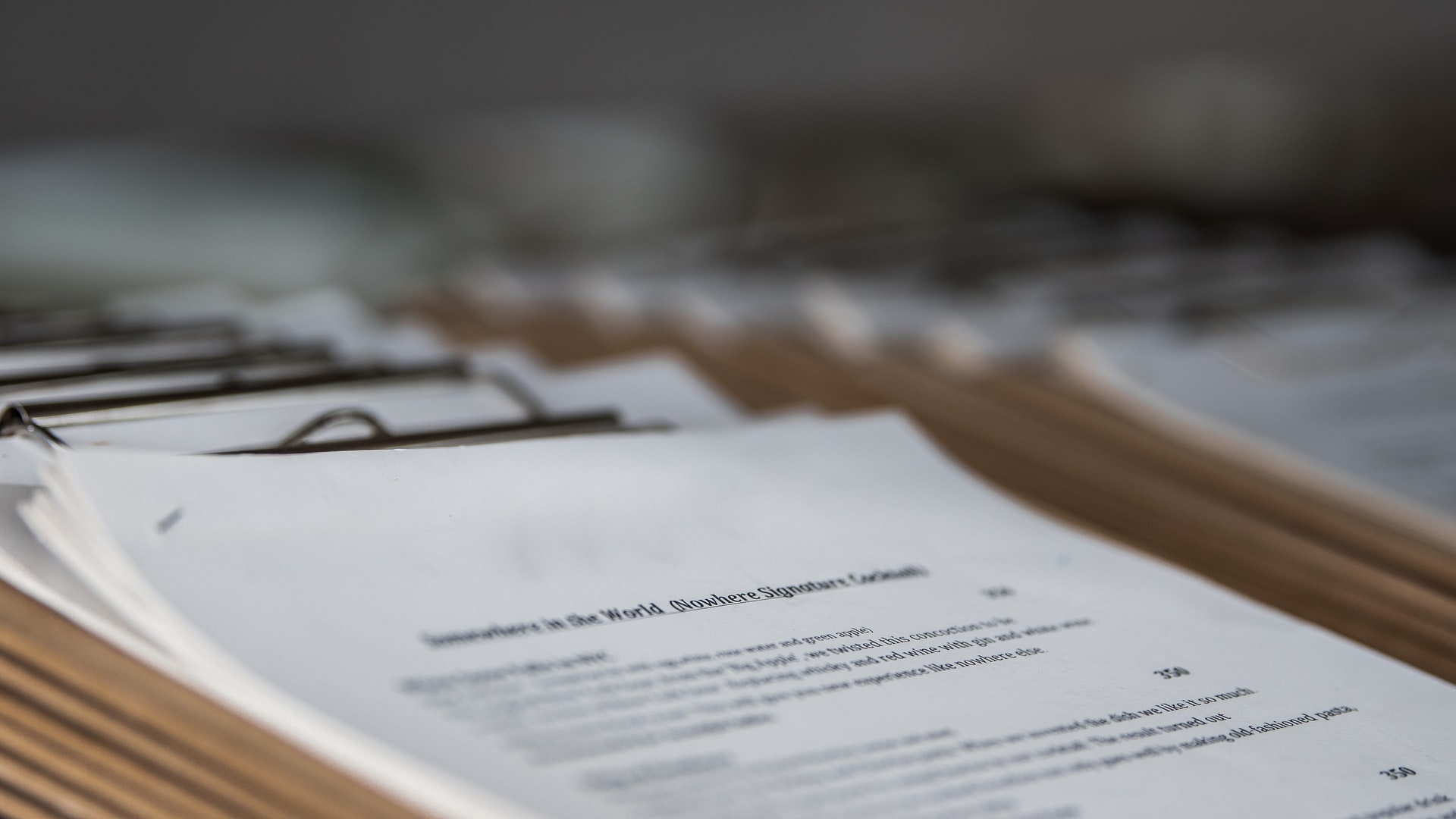Dealing with the sudden loss of your loved one is gripping and takes time to heal. While you brace yourself for the loss and settle emotionally, multiple challenges might surface. If you are a beneficiary or an executor, retaining legal documents after death is essential for the future. While you must retain a few documents indefinitely, you can discard others after a suggested time.
The process of analyzing the documents is brutal. And, it is better to be prepared than regret the consequences later. This blog puts light on what to keep after someone dies, the different types of documents, and how long to retain these documents.
Why is it important to keep legal documents after death?
After a person’s death, managing the deceased’s pending financial matters or any other legal matters is essential. The most challenging thing is to overcome your ignorance regarding their affairs. Financial discussions and conversations might not be encouraged, and we often overlook them. But, it is crucial to enlist all your financial assets and inform your partner or family.
Retaining estate documents after death can be helpful in case of any pending audits. Different reasons might delay the audit, such as incomplete information, mismatched paperwork, and undeclared income. Besides, inevitable adversities like recession and pandemics can delay the process.
Legal documents like the deceased’s marriage certificate and divorce decrees are crucial to settle estate affairs. Health insurance cards make you aware of the insurance availed and avoid paying unnecessary medical bills. Besides, mail and account statements inform you regarding any payments or installments due.
How long should tax returns be kept?
Tax returns are essential documents to be preserved after a person’s death. Moreover, tax returns are the most asked-for and most complex documents. Internal Revenue Service (IRS) is the revenue service responsible for collecting U.S. federal taxes. Generally, the statute of limitations for the Internal Revenue Service is three years from the tax return’s due date or date of filing, whichever is later.
Further, the statute of limitations may get extended to six years from the date of return is filed if there is a considerable omission of gross income on the return. However, in some instances, the audit might get extended due to the complexity of issues and the availability of information. Besides, the Canada Revenue Service (CRA) statute of limitation is four years.
Regardless of the statute of limitations, keeping the documents for six years is better. The documents to be kept include the tax forms and receipts.
How long should the executor keep records?
An executor is a person who executes your will or testament and ensures to take care of all the wishes and instructions. An executor should keep the records for at least three years from the end of last year’s tax. But keeping them for six years is safe if the audit gets delayed due to incomplete or contradictory information in your returns.
What other documents should be kept?
While the tax records are the most important documents to be kept, there are a few additional documents you should retain for the future.
The classification of critical documents into groups is as follows:
Legal Records
Any document related to law, either federal, provincial, or local, is called a legal record. A legal record supports the legal rights and responsibilities within the legal system. Also, you can prove them as a piece of evidence in court proceedings. Hence, you should retain them indefinitely.
Here’s a death documents checklist that ensures you the deceased’s critical documents are covered:
- Death Certificate
- Certificate of Birth
- Social Security Card
- Certificate of Marriage and prenuptial agreements
- Divorce orders
- Legal Will
- Power of attorney
Moreover, storing these documents with your vital documents is a good idea. As it is better to keep them for as long as possible, the only way is to inherit them from your beneficiary after death. Legal records are crucial to managing estate affairs.
The certificate of marriage and prenuptial agreements are essential to resolve estate disputes, if any. Besides, they can help track family history or genealogy purposes.
What is an estate beneficiary?

An estate beneficiary is a person named in your estate plan who inherits your estate after your death. The benefits could be either monetary or anything else you document in your estate plan.
Power of attorney after death
A power of attorney is a legally compliant document allowing the person creating it (principal) to entrust someone else to act on their behalf. They can sign contracts, cheques, pay bills and manage investments on behalf of the principal. But is power of attorney valid after death? The answer is no – a power of attorney expires once the principal dies.
Durable power of attorney after death
A durable power of attorney involves an extended power even if the principal is incapacitated or unable to make decisions. A durable power of attorney also expires when the attorney’s principal dies.
Financial Documents
Managing the deceased person’s financial affairs can be equally gripping and strenuous as the person’s death, especially when you aren’t aware of the different finances the person owns. Moreover, you should keep the financial documents for at least six years after the person’s death or submission of estate taxes, whichever occurs later.
Following are the financial documents to be retained:
- Account Statements
- Receipts
- Pay Stubs
- Tax returns
- Retirement statements and distribution
Furthermore, you require these documents in case of any possible audit; hence it is wise to maintain them.
Medical Documents
Medical Documents involve privacy regulations and hence, are confidential. Therefore, only an authorized representative or an executor can access the document. You should retain them for at least ten years.
Here are a few medical documents that you should retain after the person’s death:
- Health insurance cards
- Medical test reports
- Prescriptions
- Hospital discharge form
- Medical History
These documents give a detailed understanding of the deceased’s medical history, any underlying health condition, and treatment undergone for the same. The prescriptions also inform you regarding the hospital visits and assure you that your loved ones received the highest quality of treatment. Another significant point you conclude is about the insurance available and thus avoiding payment of unnecessary medical bills.
Additionally important documents
Besides the usual documents, you also need a few additional documents. Hence, it is essential to scrutinize what is important and discard the ones that aren’t of any legal, medical, or financial use.
Here are a few other additional documents to keep beside the documents mentioned above:
- Home and car insurance documents
- Rental Agreements
- Diplomas
If you and the deceased shared the same residence, it is a good idea to inform the sender of the mail about the deceased’s death. On the other hand, if you are an executor, show the supporting documentation to change the deceased’s mailing address. You should retain home and car insurance documents for at least ten years.
The best way to discard old unwanted documents is shredding to avoid any possible identity theft of your confidential information. Moreover, the method is quick and cost-effective.
Conclusion
Whether you are a Beneficiary or an Executor of Will, the responsibility to retain the legal documents transfers to you after the person dies. Hence, knowing how long to keep legal documents after death is imperative. Though this implies increased paperwork and occupies a considerable amount of space on your shelf, keeping them for a particular time is safe. Moreover, maintaining the records helps to manage any possible audits or issues in the future.
We at Clocr provide a Digital Vault service to secure all your critical online documents in one place. Moreover, the digital vault is safe as it operates on patent-pending technology that digitally shreds the files and distributes them at multiple storage locations. Furthermore, as an additional layer of protection, we employ multi-factor authentication and strong passwords.
Also, the service comes with flexible file-sharing options and an option to lock the files and make them available to the beneficiaries when the time comes. So, to organize your assets and secure your future. Join CLOCR today!




